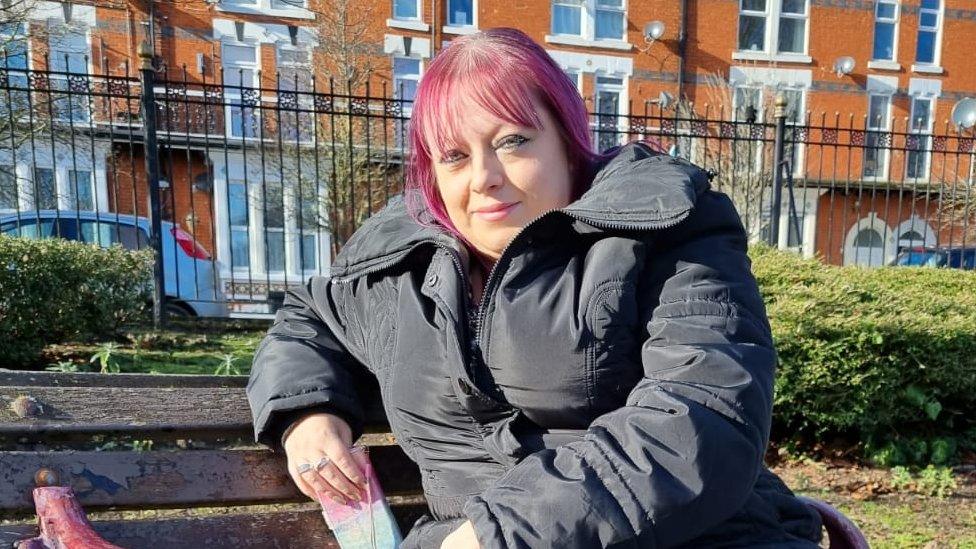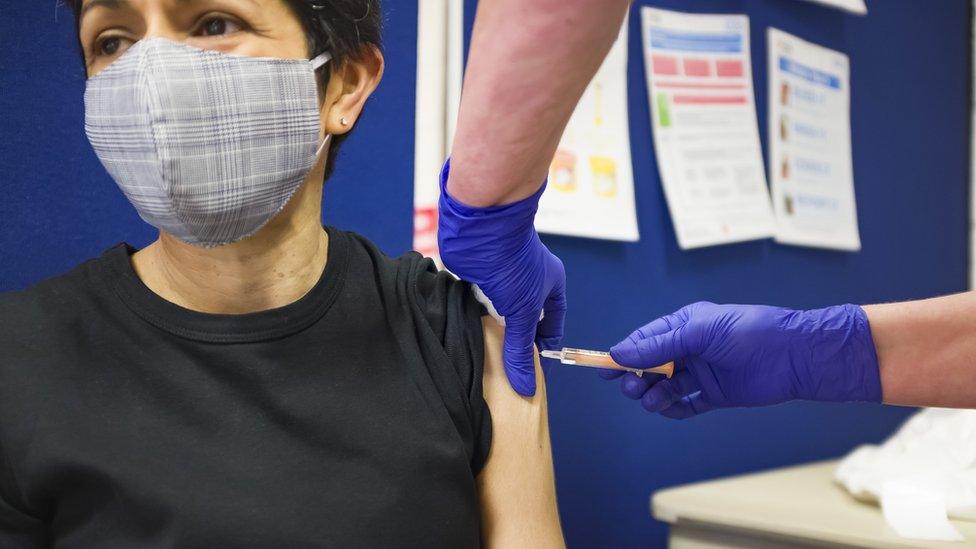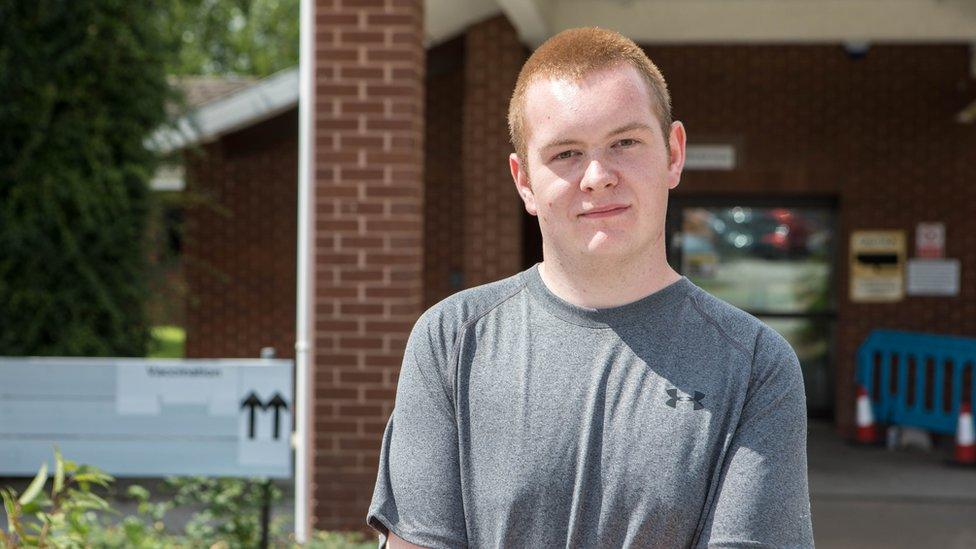Covid: Specialist vaccine sessions for people with needle phobia
- Published

Jenny Smith, from Skegness, said when she had tried to book a Covid jab she would "completely freak out"
Specialist walk-in sessions have been held in Lincolnshire for people with a fear of needles to get vaccinated against Covid.
The Lincolnshire Clinical Commissioning Group said it was offering jabs during "quieter times" at vaccination centres in Boston and Lincolnshire Showground.
Jenny Smith, from Skegness, said the thought of injections would "make me feel really queasy and faint".
She said when she tried to book a Covid jab she would "completely freak out".
Ms Smith said that at one point she was not even able to say the word needle and has undergone three months of therapy to try and overcome her fear.
"I do really really want it. I'm not an anti-vaxxer at all," she said.
"For the short term if it was in a nasal spray, if it was in a patch I'd be instantly there and I'd already have all three. But because it's in injection form - no."
Ms Smith said when her partner went to a centre to get vaccinated, she sat in a car park and "felt faint" before she phoned her mum and cried.
"Sitting in the car all of a sudden I felt grey, you could feel the waves coming over you. I just thought why am I reacting like that, it's not even my injection."
An Oxford University survey, external of more than 15,000 adults in the UK suggests needle phobia accounts for about 10% of Covid vaccine hesitancy.
Rebecca Neno, from NHS Lincolnshire, said the sessions allowed people more time to try and overcome their fears.
"A lot of it is around trust, working through people's anxieties, breathing techniques," she said.
"So it depends, each individual who comes through the door is very unique."

What is needle phobia?

About one in 10 people who are hesitant to have the Covid-19 jab have needle phobia, a study suggests
Needle phobia is a fear of medical procedures that involve needles or injections. It affects about one in 10 people, according to the NHS.
The fear is often the result of bad memories of needles in younger life.
"It's possible that seeing others reacting [badly] to an injection means you learn that response from them," says psychologist and phobia specialist, Robert Edelman.
"Needles are also associated with blood and for a lot of people that triggers an anxiety response - an increase and then a decrease in heart rate results in fainting."

Related topics
- Published6 August 2021
